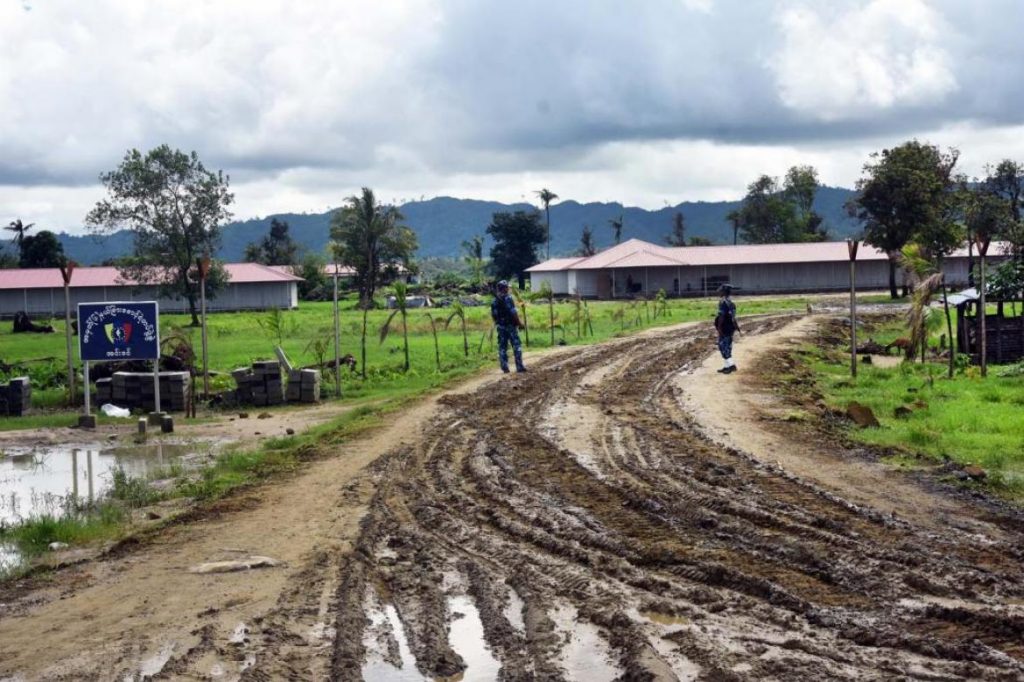By THOMAS KEAN | FRONTIER
YANGON — The United Nations has urged Myanmar to step up implementation of a repatriation agreement signed in early June, including by granting access to northern Rakhine State for UN staff.
The joint statement from the UN Refugee Agency (UNHCR) and UN Development Programme said they had been waiting for the government to approve travel authorisation requests for international staff to work in northern Rakhine State since June 14.
While noting that the government had taken some “encouraging” steps since the MOU was signed, it said progress was “urgently needed” on effective access to northern Rakhine, ensuring freedom of movement for all communities and addressing the root causes of the crisis.
“The Myanmar government’s willingness to take the lead in the implementation of this agreement is critical to creating conditions conducive for the voluntary, safe, dignified, and sustainable return of Rohingya refugees,” the statement said.
Support more independent journalism like this. Sign up to be a Frontier member.
The statement said just signing the MOU would not enable refugees to return to Myanmar and called on the government to implement the recommendations of the Advisory Commission on Rakhine State, “including a clear, voluntary and equal pathway to citizenship for all eligible individuals”.
The commission, led by former UN secretary-general Mr Kofi Annan, submitted its final report with 88 recommendations to the government on August 24, 2017. Just hours later, the Arakan Rohingya Salvation Army launched attacks on security posts in northern Rakhine State, prompting a military clearance operation that resulted in nearly 700,000 Muslim Rohingya fleeing to Bangladesh.
Myanmar has said it is committed to accepting eligible refugees back, but almost none have returned since a bilateral MOU was signed with Bangladesh last November.
At a press conference in Nay Pyi Taw on Monday, Japan’s foreign minister, Mr Taro Kono, welcomed the Myanmar government’s decision to sign the MOU with the UN, but also said his country wanted to see further progress on “refugee resettlement arrangements, and also poverty reduction and raising the living standards of people in the state”.
“The Japanese government asked the Myanmar government to set up an independent investigation commission [into allegations of human rights abuses] and to cooperate with the UN, and now the Myanmar government is doing it step by step. We appreciate and value it,” the foreign minister said after his meeting with State Counsellor Daw Aung San Suu Kyi.
The state counsellor said her government had “already implemented” 81 of 88 recommendations made by the Rakhine advisory commission, with only long-term issues such as citizenship left to undertake.
“For the people from the outside, they can look at it however they want. But as a government, we have to consider all the different views and find all-inclusive solutions to the problem,” she said.
But Ms Laetitia van den Assum, a former member of the now-disbanded advisory commission, said there was a “total lack of transparency” over which of the recommendations had been implemented and to what extent.
“I wish I could tell you which of these recommendations have been completely implemented but we just don’t know … and I don’t think a lot of people know what is really happening,” she told Frontier. “It’s a concern because the people of Rakhine have a right to know and deserve to know.”
She said the lack of information about the government’s activities was fuelling criticism and resentment, and also made it hard for international actors to provide support.
“What I’ve been saying over the past couple of months is please, help yourselves and help the international community. There’s a great eagerness to provide support to something tangible so please present a plan, let’s say over five years, about what needs to be done to implement those recommendations.”







